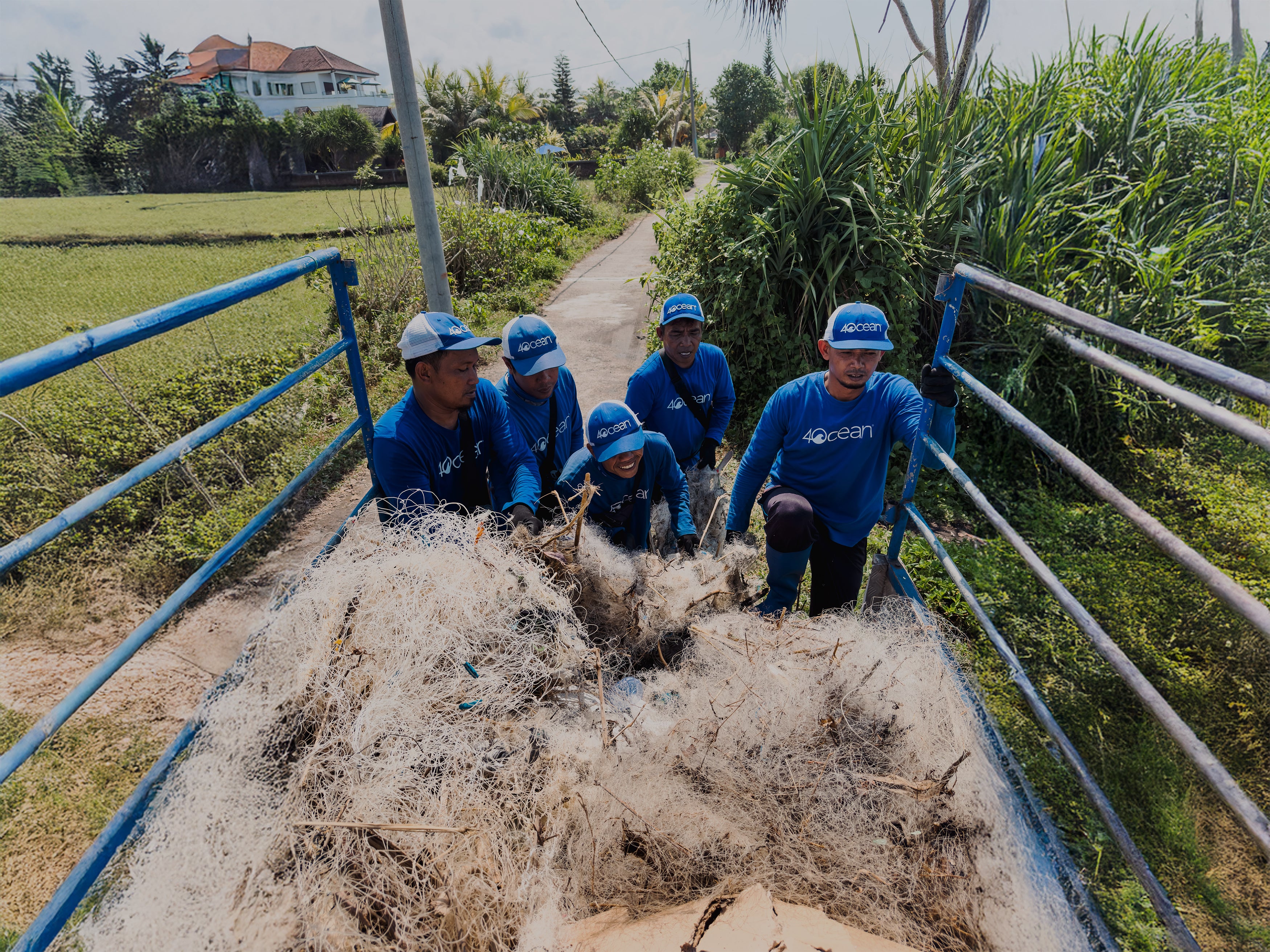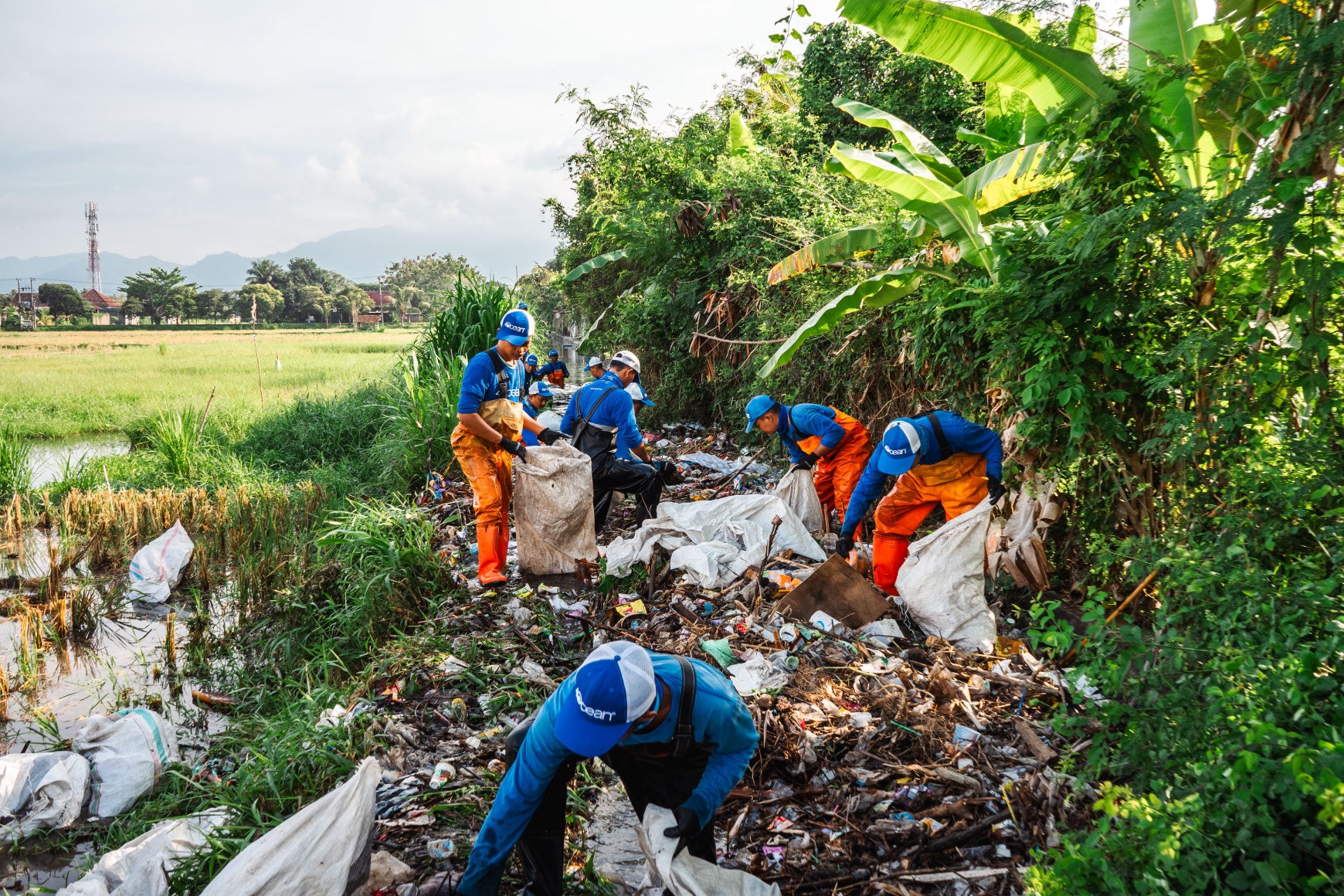5 MIN READ
12-24-2024
Plastic-Leaved Trees at Ijo Gading River: A Haunting Aftermath of the Flood
Kubik, 4ocean Bali Content Correspondent
The aftermath of a recent flash flood at Ijo Gading River in Bali painted a chilling picture of environmental neglect. Once vibrant and green, the trees along the riverbanks now bear an unnatural burden—plastic waste clinging to their branches and roots. The scene was almost surreal: entire stretches of the river seemed lined with "plastic-leaved trees," a stark reminder of the pervasive impact of human activities on nature.
The 4ocean Jembrana team, led by Qubik, arrived to assess the damage and begin the daunting task of cleanup. The flood had wreaked havoc on the area, even damaging the 4ocean pier where their boats dock. Amid the devastation, the team found a glimmer of hope—a baby monitor lizard entangled in the plastic debris. With steady hands, team member Imam carefully freed the creature and released it back into the water, a small victory in an otherwise somber landscape.


As the crew worked, they uncovered 821.55 pounds of waste, ranging from PET bottles and plastic sacks to fabric and cups. The plastic intertwined with dry leaves and branches, making the cleanup slow and meticulous. "The trees looked alive but choked," one crew member reflected. "It was heartbreaking to see nature fighting to survive under all that plastic."
The flood’s aftermath revealed a harsh truth: much of the waste tangled in the trees came from illegal dumping by residents living along the riverbanks. Seasonal floods carried the trash downstream, where it mixed with organic debris, creating blockages and further degrading the environment. This cycle of neglect not only suffocates the river’s ecosystem but also increases the risk of future flooding by obstructing water flow.
Despite the challenges, the team’s resolve remained unshaken. Carefully untangling waste from the trees, they worked to minimize further damage to the fragile vegetation. Their efforts went beyond the physical labor of cleanup—they also symbolized a plea for collective responsibility.
"During the rainy season, this waste doesn’t just stay here; it ends up in the ocean," the crew shared. Their message was clear: the fight against plastic pollution starts with every individual’s choice to dispose of waste properly.
The team encountered bamboo, banana trees, mangroves, and hibiscus—many of them uprooted by the flood. This loss highlights the delicate balance of river ecosystems and the urgent need to protect them.

The haunting image of plastic-leaved trees serves as a powerful reminder of the consequences of unchecked littering. Proper waste disposal is not just a personal choice but a community responsibility. By making conscious decisions today, we can prevent more landscapes like Ijo Gading River from being transformed into monuments of waste.
The 4ocean Jembrana crew will return to the riverbanks, determined to restore what’s been lost. But their message is for all of us: together, we can change this narrative.










